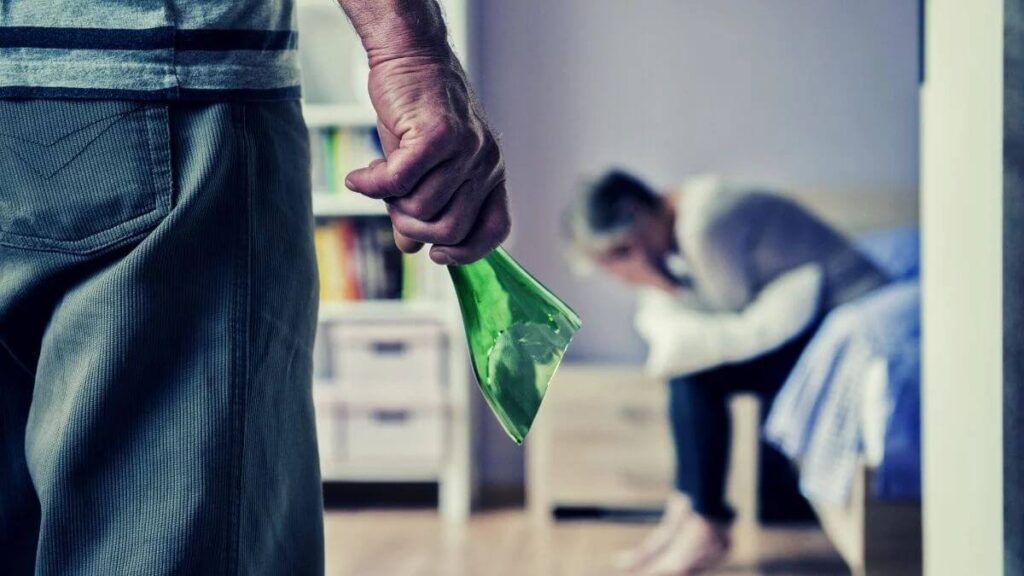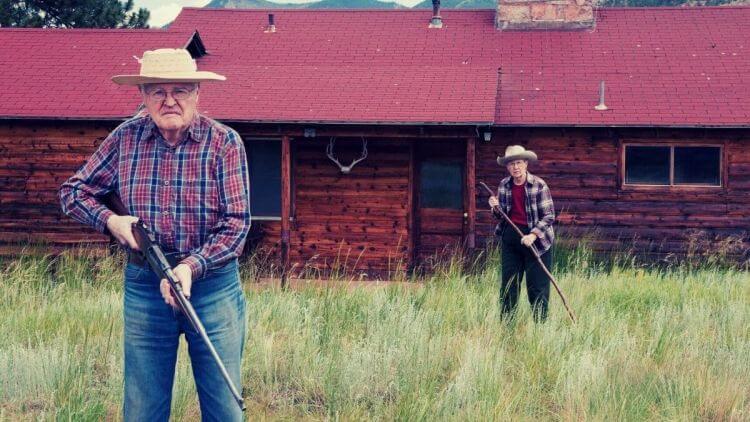
Are seniors at a higher risk of violence after a disaster? Most people would think so. They are a more vulnerable population. It would make sense that they are.
But what does the research say?
Violence after Disasters
Some researchers say disasters are a time of social cohesion, when people come together as a community. There is evidence to support this, and we can see it unfold. A hurricane or tornado will rip through an area. Neighbors mourn together. Then they rebuild together.
Things are by no means not rosy after a crisis, however. It’s a crisis for a reason. And with a crisis comes crime.
The Journalist’s Resource published an article on this subject, stating:
When disasters strike communities, people largely pull together. In the wake of devastating events like earthquakes, big fires, or hurricanes, they look for ways to support one another, protect what remains, and re-establish a sense of normalcy. But both anecdotes and systematic evidence tell us that there are some exceptions. A few people in disaster areas turn to anti-social activities, including crime.
Disaster researchers now look at the full range of behaviors that occur. Uplifting cooperation follows community disasters, but so do looting; sexual assaults, acts of domestic violence, and fraud.
https://journalistsresource.org/politics-and-government/crime-disaster-hurricane-earthquake-research/
Crime after a disaster is real. Police are preoccupied. People are desperate. Thugs see opportunity.
Seniors as Targets
Criminals like easy targets and older, frail senior citizens are seen as just that. The CDC states that approximately 22% of Americans 65+ years old are disabled in some way, shape, or manner. Seniors are less physically able to protect themselves. They can’t run as fast, they’re not as strong, and old bones break more easily.
Another problem is that seniors often have prescription drugs at home. Many have standing orders for different painkillers. Addicts know this.
How long can an addict go without a fix before risking armed robbery to find one?
Beyond addicts, you have people desperate for money after a collapse. People might look to steal drugs that they can then sell on the street.
In a prolonged crisis, otherwise honest people with legitimate health conditions could also come looking. How far will someone go to keep themselves alive? How far would they go to keep a child alive?
Whether a senior actually has prescription drugs in the home or not doesn’t matter. The homes of older adults are where people would look for them.
4 Ways Seniors Can Improve Safety After a Crisis

Seniors are some of the toughest people I know. For starters, growing old isn’t easy. They have learned to be tough. They also come from a generation where harder times were more common, and self-reliance was a way of life.
Despite the challenges, there are plenty of ways seniors can improve safety and reduce the odds they become victims.
#1 – Own an Equalizer (and know how to use it)
A .38 Special is a great “equalizer” for an 80-year-old woman with arthritic knees going up against a twenty-year-old tweeker looking for food, booze, and drugs.
If guns make an elder nervous, there are non-gun self defense weapons. The point is to have something that helps level the playing field against an opponent.
#2 – Find Strength in Numbers
After a disaster women and children who become separated from their families are at an increased risk of being the victims of violence in one form or another. Rape is one of them. After Hurricane Katrina, there was a significant rise in the number of rapes in the affected region.
Flying solo during a crisis puts the person at a disadvantage – especially if they are a vulnerable population group, like seniors.
Older adults might be wise to move in with family after a natural disaster or collapse until things return to normal. This is even more important of the senior lives in urban centers, close to bad areas of town, or live alone.
#3 – Have Adequate Communication
Proper communication is vital. Seniors need the ability to communicate with law enforcement (assuming LE is still available) and with family and friends. This is for their own safety but also the safety of others. Seniors know more than anyone the importance of checking on their peers.
#4 – Be Prepared at Home
You have better odds at survival and safety if you can eliminate the need to leave your house in search of provisions or other necessities. Your home is your castle. Do not place yourself at risk by leaving it during a crisis.
Seniors need medical supplies stocked, food stored, access to potable water or the means to make it, self-defense tools, communication equipment, etc. In other words – they need to be preppers!
What’s the Bottom Line?
Seniors are at a higher risk of violence after a crisis. Perhaps in the immediate aftermath of a disaster there are people who will band together as they all seek to escape a common destruction. However, there are others who will view it as an opportunity to commit crime.
Prolonged disasters are particularly troublesome. People begin to get hungry, cold, thirsty, scared, and realize that there are a whole lot of supplies out there that they can get by stealing. Perhaps all it takes is a bit of intimidation. Maybe it just requires pushing someone over. The easier the better for criminals.
Seniors need to be prepared for this. Seniors’ families need to be prepared for it as well. Adult children need to protect older parents after a disaster the same as those parents would have protected them. Start an action plan if you haven’t already.

6 comments
Well when a semi auto 12 gauge with 3 inch #4 buckshot business end of the barrel is the first thing you see when you break in, You better know your leaving in a mop bucket!
Just owning a firearm isn’t really enough. If you purchased a chainsaw would you read the instructions or would you just tackle that 50 foot oak tree between your house and your neighbor’s where the branches almost touch each house? Or would you read up on tree removal and how to operate your chainsaw safely while downing a tree that size?
If you would not study up on how to approach such a task, then you should not own a firearm either.
Before you make the purchase, read up on firearms. There are several good monthly periodicals that are devoted to firearms. Subscribe to a couple and read them cover to cover. There are noted authors detailing how to handle self-defense. Masad Ayoob is a nationally known expert in firearms self-defense. Buy his books and read them cover to cover. While it may seem like a waste of money, retain an attorney who specializes in criminal defense. If you can find one who specializes in firearms criminal defense, hire him to research the laws of your state regarding self defense, where and when you can do it and how. Pay him for his research. Have him give you printed copies of the pertinent penal code sections and other codes sections that apply to self-defense. Trust me, it is worth the money. Don’t ask a cop. He is not a lawyer. He may think he knows the law, but that is why the government has lawyers to prosecute what they think are crimes and not cops prosecuting folks they arrest.
Seek out a firearms instructor and ask if he can furnish firearms to practice with during his instruction before you acquire a firearm. You wouldn’t buy a car without a test drive and if you didn’t know how to drive you certainly wouldn’t buy one. Contrary to urban legend, just because you are an American doesn’t automatically make you an expert shot. Like any hand-eye coordinated exercise shooting a firearm takes practice. You wouldn’t enter the Wimbledon tennis tournament without taking at least a couple of tennis lessons, why would you engage in a life and death struggle with an instrument that you had never practiced with? It is the height of foolishness to buy a gun, stick it in your nightstand and expect in the duress of a situation where you are fighting for your life that you will be able to operate that firearm effectively.
I have owned and been shooting a variety of firearms for 69 years. I spent four years on active duty with the USMC and four years active reserve duty with the Marine Reserves. For one period in my life I fired 50-100 rounds every Wednesday from my handgun. I have participated in NRA matches, both high power rifle and pistol over the years I have owned firearms, I have read Mr. Ayoob’s books and other books on self-defense. I have subscribed to several gun magazines and read them from cover to cover for many years. Despite all that, I don’t hold myself out as an expert in overall knowledge of firearms nor the legal ramifications of self-defense outside of my home state.
Agreed! Just having a firearm does not make one a responsibly armed citizen, no more than simply owning a violin would make anyone a virtuoso. There are lots of self defense schools where you will learn when and how to defend yourself with a firearm, and just as importantly, when not to use deadly force. You only get one chance to get it right.
Sign up for USCCA and mention me, for free basic self defense instruction.
Another suggestion is to get one of the dry fire practice kits. I have set the target up at different places around my home in order to practice shooting inside my home for worst case scenarios. I’m not at all a firearms expert, just a grandma, but I do believe in training and practice. To be honest, what I worry about these days is my 92 year old Dad with dementia who is currently in memory care. If SHTF, I have no idea what to do for him. I’m pretty prepared and so are my children, but my Dad is a Korean War Veteran who raised me and my brothers and sister, and took good care of us growing up. However, currently, he doesn’t have the ability to walk very far, and is getting to the stage where he doesn’t remember who I am anymore (sad). I do a fair bit of praying about this one because I honestly don’t know what I’d do for him. I love my Dad, but his current care is beyond my ability and especially in an emergency situation. Any thoughts from you folks out there?